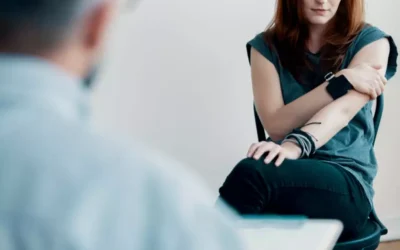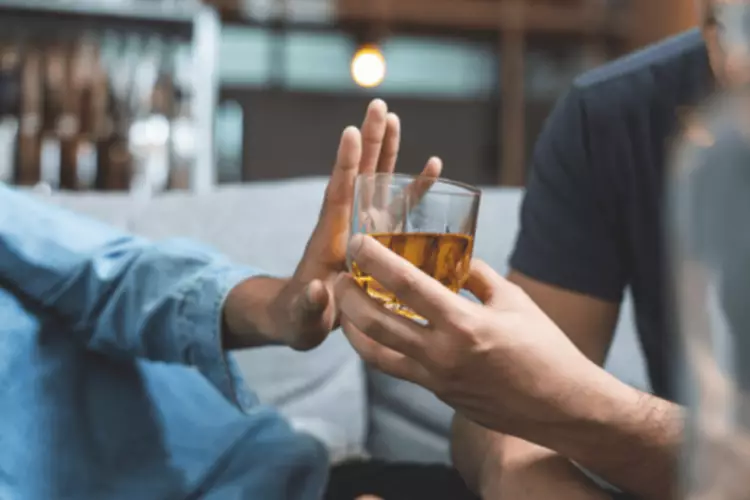25 Jan Alcohol Anxiety: Can Drinking Cause Anxiety & Panic Attacks?
While you might feel that it works in the short term, it’s more likely to cause you problems in the long run. If you have an anxiety disorder, alcohol misuse and withdrawal can make your symptoms worse. The onset of symptoms related to social anxiety disorder and agoraphobia can be a trigger for some people to develop unhealthy relationships with alcohol. If you’ve had signs or symptoms of a panic attack, make an appointment with your primary care provider.
Gender Differences in Comorbid Anxiety and Alcohol Use Disorders
Cross-sectional snapshots of people who have significant alcohol problems might reveal groups with anxiety (Apollonian) and groups without anxiety (Dionysian), but, ultimately, all may become Apollonian types as addiction advances. People who manifest anxiety problems before alcohol problems may transition very rapidly (telescope) from binge/intoxication (Dionysian) to negative affect/withdrawal (Apollonian), whereas others may make this transition more slowly or, perhaps, never. These allostatic adaptations in the brain lead to the second stage of addiction—withdrawal/negative affect. In this stage, reward circuits become blunted because of within-system neuroadaptations. The brain’s stress systems, including corticotropin releasing factor and norepinephrine in the central amygdala and bed nucleus of the stria terminalis, become increasingly dysregulated because of between-system compensatory neuroadaptations. At this point in the addiction process, subjective negative affect predominates, especially during periods of sobriety and withdrawal.
- With the new Amy Winehouse biopic “Back to Black” in U.S. theaters as of May 17, 2024, the late singer’s relationship with alcohol and drugs is under scrutiny again.
- A diagnosis of an alcohol use disorder is now used over outdated terms such as labeling an individual as an alcoholic or having alcoholism.
- For instance, alcohol withdrawal and panic attacks can both cause changes in your heart rate that might feel like palpitations.
- In fact, the support for multiple causal models may reflect that etiological differences exist among individuals who share this comorbidity, based on which disorder or predisposing variable was initially present.
Do All Types of Alcohol Cause Anxiety?
Women may be more likely than men to have some of the most catastrophic health effects caused by alcohol use, such as liver issues, cardiovascular disease and cancer. Middle-aged women are now at the highest risk for binge drinking compared with other populations. I am a neurobiologist focused on understanding the chemicals and brain regions that underlie addiction to alcohol. I study how neuropeptides – unique signaling molecules in the prefrontal cortex, one of the key brain regions in decision-making, risk-taking and reward – are altered by repeated exposure to binge alcohol consumption in animal models. Some of the same methods you use to end your reliance on alcohol are also effective for managing other conditions.
- The psychiatric, psychological, and neuroscientific disciplines have developed theories to explain the association between alcohol and anxiety disorders.
- While it might be tempting to turn to alcohol to manage feelings of anxiety, it can be a slippery slope that worsens anxiety problems and increases your risk of developing an alcohol use disorder.
- About 30% of people who experience substance use disorder also experience another mental health condition.
- But if you have feelings of anxiety that are constant, overwhelming, or affect your daily life, there are things you can do, and support that is available to help you manage.
Reduce anxiety
Alcohol withdrawals refer to unpleasant symptoms that occur when alcoholics try to stop drinking or when the alcohol level in their blood falls significantly. Many alcoholics will experience early withdrawal symptoms as part of their hangover, but does alcohol cause panic attacks the symptoms will disappear as soon as they start drinking. This is a common reason for why such individuals will feel the need to drink as soon as they wake up. Some individuals will experience panic attacks as part of their withdrawal symptoms.


Mental health is personal.So is our approach to psychiatry.
- For example, medically oriented researchers might view subclinical negative affect as qualitatively rather than quantitatively distinct from diagnosed anxiety disorders.
- It’s important to seek medical treatment, like medication and psychotherapy, if you’re having frequent panic attacks.
- Alcohol not only contributes to anxiety but rewires the part of the brain responsible for coping with fear.
- Although even a heavy night of drinking can trigger anxiety, major withdrawal symptoms and bad hangovers make alcohol panic attacks even more likely.
- According to the Anxiety and Depression Association of America (ADAA), it isn’t unusual for people with social anxiety disorder and other anxiety disorders to use alcohol to try to calm anxiousness and ease related symptoms.
- While all forms of alcohol consumption come with health risks, binge drinking appears to be particularly dangerous due to how repeated cycling between a high state and a withdrawal state affect the brain.
- Panic attacks are episodes of extreme anxiety that typically last between 5 and 20 minutes.
- When you drink alcohol regularly for a long time, your brain will begin to produce stimulating hormones in higher-than-normal levels.
Drinking four coffees a day made my anxiety worse, so I cut out all caffeine – ABC News
Drinking four coffees a day made my anxiety worse, so I cut out all caffeine.
Posted: Tue, 05 Jul 2022 07:00:00 GMT [source]



